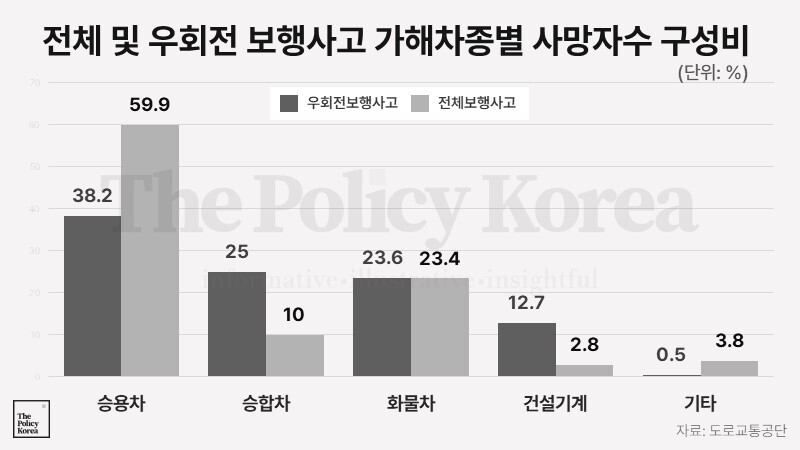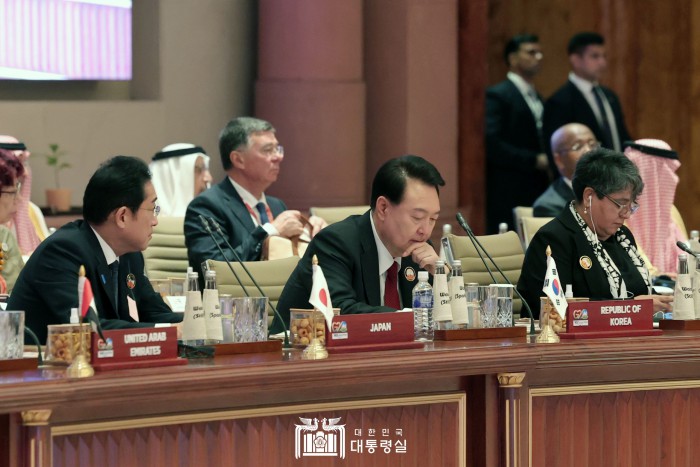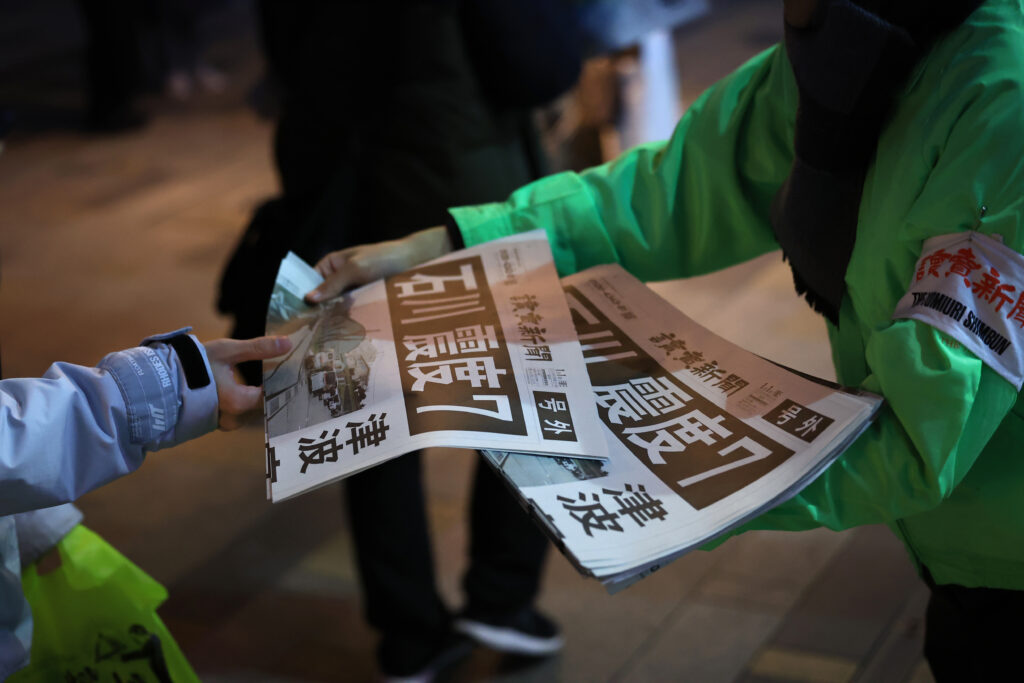[동아시아포럼] 자민당 비자금 스캔들 속 기시다 총리의 생존 투쟁
자민당, 통일교 논란에 불법 정치자금 의혹으로 위기 봉착 검찰, '아베파' 소속 의원의 비자금 축적에 대한 수사 착수 기시다 총리, 개혁의지 밝히면서 연루의혹 핵심관료 경질
[동아시아포럼]은 EAST ASIA FORUM에서 전하는 동아시아 정책 동향을 담았습니다. EAST ASIA FORUM은 오스트레일리아 국립대학교(Australia National University) 크로퍼드 공공정책대학(Crawford School of Public Policy) 산하의 공공정책과 관련된 정치, 경제, 비즈니스, 법률, 안보, 국제관계에 대한 연구·분석 플랫폼입니다.저희 폴리시코리아(The Policy Korea)와 영어 원문 공개 조건으로 콘텐츠 제휴가 진행 중입니다.
기시다 후미오 일본 총리와 집권 자민당이 최악의 비자금 스캔들로 위기에 처했다. 기시다 내각에 대한 지지율이 10%대로 하락하는 등 국민들의 불신이 깊어지는 가운데 이번 스캔들은 단순히 악재를 넘어 정권 자체를 위협하는 심각한 위기로 확대되고 있다.
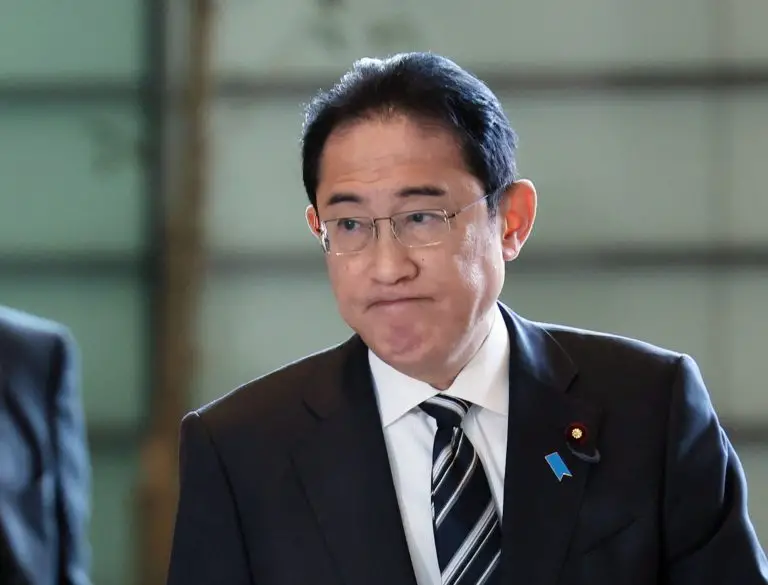
후원금으로 비자금 조성 의혹, 아베파 소속 의원 수사 착수
지난 2021년 10월 출범한 기시다 내각은 이번 스캔들이 있기 전에도 이미 고용 불안과 경기 침체, 고물가 대책, 저출산 정책, 연금 등 사회보장, 통일교와의 유착 논란 등으로 지지율이 하락하면서 어려움을 겪고 있었다. 여기에 지난해 아베 신조 전 총리가 선거 유세 중 피살당하는 사건이 발생하면서 상황은 더욱 복잡해졌다. 암살범은 아베 전 총리가 지원한 통일교로 인해 가족이 파산했으며 그 과정에서 어머니가 강요받은 헌금이 1억 엔(약 10억원)에 이른다고 주장했다. 많은 자민당 의원들이 통일교를 지지하는 것으로 알려져 있으나 기시다 총리와 자민당은 이 문제에 대해 투명하게 밝히지 않고 있다.
올해 10~11월 기시다 총리와 내각에 대한 지지율 하락에도 불구하고 자민당의 지지율은 30%대를 유지했다. 이 때문에 전문가들은 현 내각에 대한 부정적인 평가가 총리직을 수행하는 데 있어 직접적인 위협은 없을 것으로 전망했다. 하지만 11월 말 비자금 스캔들이 터지면서 상황이 급격히 바뀌었다. 기시다 내각의 지지율은 17%로 급락했는데 이는 2012년 자민당 집권 이후 최저 수치다.
이번 비자금 스캔들은 자민당 후원금 모금 행사에서 할당액 이상을 모은 의원들에게 초과분을 환급, 비자금으로 사용하게 한 사건으로 비자금의 규모만 수백만 달러에 이를 것으로 추정된다. 해당 비자금은 신고 없이 정치적 목적으로 사용되면서 정치자금법을 위반했다는 의혹을 받고 있다. 현재 검찰은 자민당 내 최대 계파인 세이와정책연구회, 이른바 ‘아베파’ 소속 의원들에 대한 수사에 착수했다. 현지 언론에 따르면 일명 ‘기시다파’로 불리는 고치카이를 포함해 당내 4개 주요 계파가 연루됐을 가능성이 있다.
오랜 역사의 日 정치권 부정부패 스캔들
지난 14일 기시다 총리는 비자금 스캔들 연루 의혹을 받고 있는 아베파 소속 핵심 각료 4명을 사실상 경질하고 이 자리를 ‘비(非)아베파’로 교체했다. 초미의 관심을 모았던 관방장관 자리에는 기시다파의 하야시 요시마사 전 외무상이 임명됐다. 나머지 3개 장관직도 당 간부인 아소 다로 부총재, 모테기 도시미쓰 간사장, 모리야마 히로시 총무회장이 이끄는 계파에게 돌아갔다. 특히 4명의 신임 각료 모두 전임 각료 출신으로 기시다 총리가 안정적인 국정 운영에 중점을 둔 것으로 풀이된다.
하지만 이번 개각도 오랜 시간 일본 정치권의 병폐로 지적받아 온 ‘비자금 정치(Money Politics)’를 해결하지는 못할 것으로 보인다. 일본의 정치 시스템은 과거 몇 차례 개혁에도 불구하고 여전히 부패가 만연해 있기 때문이다. 앞서 1970년대 다나카 가쿠에이 총리는 불법 정치자금 스캔들로 사임한 바 있다. 다나카 총리 사임 후 자민당은 ‘미스터 클린’으로 불렸던 미키 다케오 총리를 내세워 대중의 신뢰를 회복하고자 노력했지만 1988년에 대형 금융스캔들인 ‘리쿠르트 사건’이 터지면서 또다시 위기에 봉착했다. 리쿠르트 사건은 일본의 유력 정치인들이 정보산업회사인 리쿠르트사로부터 상장 전 주식을 양도받은 사건으로 이 사건으로 인해 다케시타 노보루 당시 총리의 비서가 자살하고 유명 정치인들이 사퇴하는 등 다케시타 내각이 붕괴됐다. 다케시타 총리의 후임이었던 우노 소스케 총리도 게이샤와의 성추문으로 취임 3개월을 채우지 못하고 사임했다.
1989년 자민당은 또 다른 ‘미스터 클린’라고 불렸던 가이후 도시키 총리를 영입했지만 문제는 계속됐다. 1993년 일본 최대 물류업체 중 하나인 사가와큐빈을 둘러싼 부정부패 사건으로 자민당의 거물 정치인 가네마루 신 부총재가 의원직을 사퇴하고 정계를 떠난 것이다. 이 사건으로 인해 그해 자민당은 총선에서 과반 의석을 확보하지 못하고 일본신당, 공명당 등 8개 야당연합에 정권을 내줘야만 했다. 다만 당시 정권 교체를 통해 일본 정치가 새로운 시대를 맞이할 것이란 기대가 있었지만 실제 집권에 성공한 야당연합은 내각을 운영하고 정권을 유지하는 데 어려움을 겪었고 결국 자민당은 총선 패배 후 2년 만에 정권을 되찾았다. 2012년에는 민주당을 이기고 3년 만에 정권 교체를 이루면서 아베 총리가 장기 집권에 들어갔다. 아베 내각 시절에도 몇 차례 부정부패 의혹이 있었지만 아베 총리에 대한 높은 지지율로 인해 수면 위로 드러나진 않았다.
기시다 총리 지지율 연일 하락, 정치적 위기 넘기 어려울 듯
이번 기시다 내각 비자금 스캔들과 관련, 축적한 불법 정치자금의 규모와 연루자 등이 속속 드러나고 있다. 세부사항은 아직 밝혀지지 않았지만 검찰 수사를 통해 실체를 밝힐 수 있을 것으로 보인다. 추후 사건의 실체가 드러나면 정치인과 각료들의 추가적인 사퇴가 예상된다. 더욱이 수사 결과와 상관없이 기시다 총리의 입지는 약화될 가능성이 높다. 과거 다나카, 다케시타, 우노 내각과 달리 이번 스캔들의 경우 총리가 직접 연루되지는 않았지만 국민들은 기시다 총리가 자민당의 수장으로서 당내 부패를 인정하고 사퇴하기를 바라고 있는 것으로 알려졌다.
하지만 현재 일본의 야당은 여전히 약하고 분열돼 있어 당장은 자민당을 대체할 능력이 없다. 다만 자민당과 기시다 내각을 견제하고 부정부패에 대한 책임을 묻는 데는 중요한 역할을 하고 있다. 이번 비자금 스캔들도 일본공산당이 문제를 제기하지 않았다면 드러나지 않았을지도 모른다. 현재 기시다 총리는 성명을 내고 내각 개편과 자민당 개혁을 추진하겠다고 밝힌 상태다. 하지만 정치권 관계자들은 앞으로의 전망에 대해 “기시다 총리가 이번 스캔들을 이겨내고 내년 9월 자민당 총재 선거 때까지 살아남을 수 있다면 이는 정치적 기적”이라고 진단한다.
자민당과 기시다 총리는 중요한 선택의 기로에 서 있다. 과거 전임 총리들과 같이 일시적으로나마 청렴한 이미지로 쇄신하는 노선은 오히려 역효과를 불러올 수 있다. 현재 가장 유력하게 거론되는 노선은 계파 정치, 세습 정치에서 벗어나 자민당 내 새로운 세대의 정치세력들과 공조하며 정책 중심의 투명한 정치를 위한 비전을 제시하는 길이다. 지난 2021년 자민당 총재 선거에서는 3선 이하 의원 70여 명이 참여해 ‘자민당 개혁을 위한 젊은 의원 모임’을 발족했다. 이들이 내건 슬로건은 “낡은 정치를 타파하고 계파 의향에 얽매이지 않은 의사결정을 해야 한다”는 것이다. 젊은 정치인들이 자민당의 개혁을 위한 기존 계파의 시도에 얼마나 적극적으로 동참할지는 미지수지만, 이들의 참여 없이는 일본 정치의 고질적인 문제점이 개선되기는 어려울 것이란 시각이 지배적이다.
원문의 공동저자인 푸르넨드라 자인(Purnendra Jain)은 호주 애들레이드대학교(University of Adelaide) 아시아학과 명예교수입니다. 또 다른 공동저자인 타케시 고바야시(Takeshi Kobayashi)는 일본 자민당 의원·참의원 보좌관 출신으로, 아메리칸대학교(American University)에서 국제관계학 석사학위를 취득한 바 있습니다
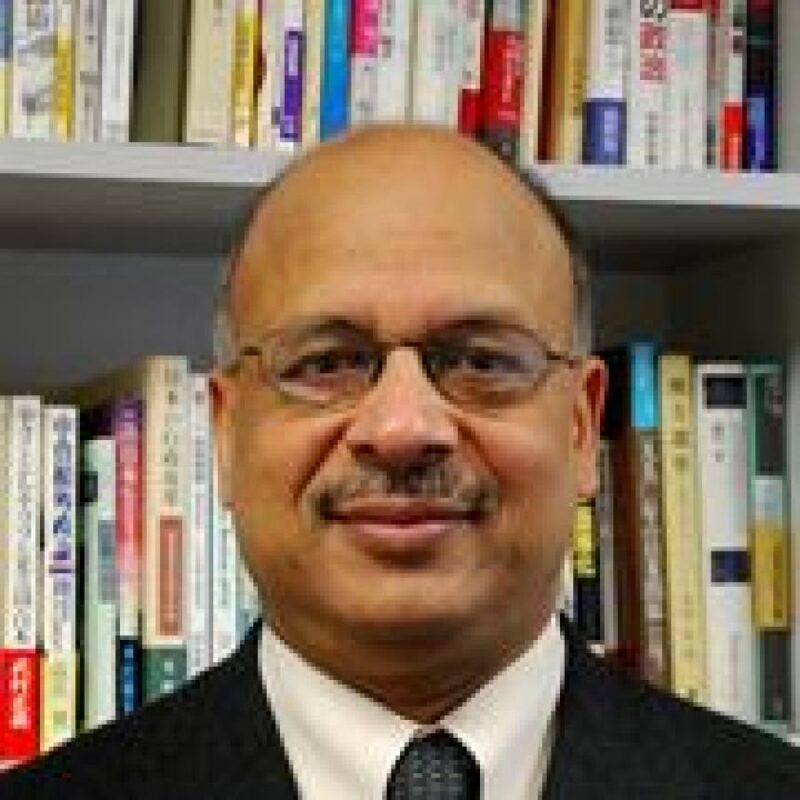
Japanese PM Kishida’s struggle for political survival
Japanese Prime Minister Fumio Kishida and his Liberal Democratic Party (LDP) are facing one of the worst financial scandals in decades, resulting in growing public distrust of the party and threatening the stability of his government.

The Kishida government, which took office in October 2021, was already facing headwinds as its cabinet’s popularity declined due to concerns about the economy, social security and the LDP’s links to the Unification Church. The assassination of former prime minister Shinzo Abe in 2022 during an election campaign further complicates matters. The assailant claimed that Abe supported the Unification Church, which he said caused his family’s bankruptcy and forced his mother into making donations. Many other LDP parliamentarians are known supporters of the Church. Kishida and the LDP are yet to be transparent about this issue.
Despite falling popularity, the LDP’s approval ratings hovered in the 30s between October and November 2023. Analysts suggested that, despite his low popularity, Kishida would continue and that there were no imminent threats to his prime ministership.
That scenario changed dramatically at the close of November 2023. One poll suggests that Kishida’s cabinet approval rate has plummeted to 17 percent, marking the lowest prime ministerial approval rating since the LDP regained power in 2012.
The drop in popularity occurred after it was revealed that LDP factions and the individual parliamentarians associated with them had failed to report all revenues from ticket sales at fundraising events. The slush fund, estimated to be millions of dollars, was used for political purposes, violating the Public Funds Control Law.
The Public Prosecutors Office has launched investigations into the LDP’s largest and most influential faction, the Seiwakai, commonly referred to as the Abe faction. Reports suggest that four other major factions, including the one led by Kishida, might also be implicated.
Kishida has replaced four key cabinet ministers from the Abe faction. The position of Chief Cabinet Secretary — which serves as the face of the government — has gone to Yoshimasa Hayashi. Kishida had removed Hayashi from his position as foreign minister and, facing difficulty in persuading other colleagues to assume the Chief Cabinet Secretary position, Kishida opted for Hayashi, a member of his own faction. The other three ministerial positions went to factions led by Taro Aso, Toshimitsu Motegi and Hiroshi Moriyama.
The cabinet reshuffle does not address the core problem — money politics. Money politics remains endemic in Japan’s political system, despite past reforms.
In the 1970s, former prime minister Kakuei Tanaka resigned due to a bribery scandal. Following Tanaka’s resignation, the LDP sought to regain public trust by turning to ‘Mr Clean’, former prime minister Takeo Miki. But it was not long before another large-scale financial scandal — the Recruit Scandal — emerged in the late 1980s. The scandal led to former prime minister Noboru Takeshita’s resignation, his secretary’s suicide and the resignation of many high-profile politicians. Takeshita’s successor, former prime minister Sosuke Uno, resigned within months following revelations of sexual misconduct.
Amid the scandals, the LDP called in another Mr Clean, former prime minister Toshiki Kaifu. But the LDP’s troubles persisted.
The 1993 Sagawa Kyubin financial scandal resulted in the arrest and subsequent imprisonment of LDP ‘strongman’ Shin Kanemaru on tax evasion charges.
These scandals ultimately led to the LDP’s electoral defeat in 1993, marking what was supposed to be a new era in Japanese politics.
But opposition parties have struggled to win government and sustain it. The LDP regained power within two years of its 1993 defeat. Similarly, the LDP returned to government within three years by defeating the Democratic Party of Japan in 2012. Even during the Abe administration, reports of financial scandals emerged. But Abe’s strong popularity allowed him to survive.
The current fundraising scandal and its scale are still unfolding. More resignations are likely. Many details regarding the unlawful accumulation of political funds remain unknown. The Public Prosecutors Office may shed light on the scandal after its investigation.
Regardless of the outcome of the investigation, Kishida’s position appears untenable. Though not directly implicated like Tanaka, Takeshita and Uno in the past, the public expects Kishida, as President of the LDP, to own up to the rot in the party and step down. Despite the reshuffle of his cabinet and his statement committing to spearhead reforms in the LDP, it will be a political miracle if he survives this scandal ahead of the LDP presidential election in September 2024.
The LDP and its Prime Minister face a choice. They can follow the same path as their predecessors by temporarily presenting a ‘clean’ face and then reverting back to business as usual. Alternatively, the new generation of LDP politicians can challenge the established path and set a different course for the party, one that is policy-focused, transparent, less factional and not hereditary. But it remains uncertain whether the new generation of LDP politicians is inclined to take on this challenge.
The opposition parties remain weak, fragmented and unable to replace the LDP. Yet they play a crucial role in keeping the LDP government accountable. Without the Japanese Communist Party’s scrutiny, the present fundraising scandal might never have come to light.



